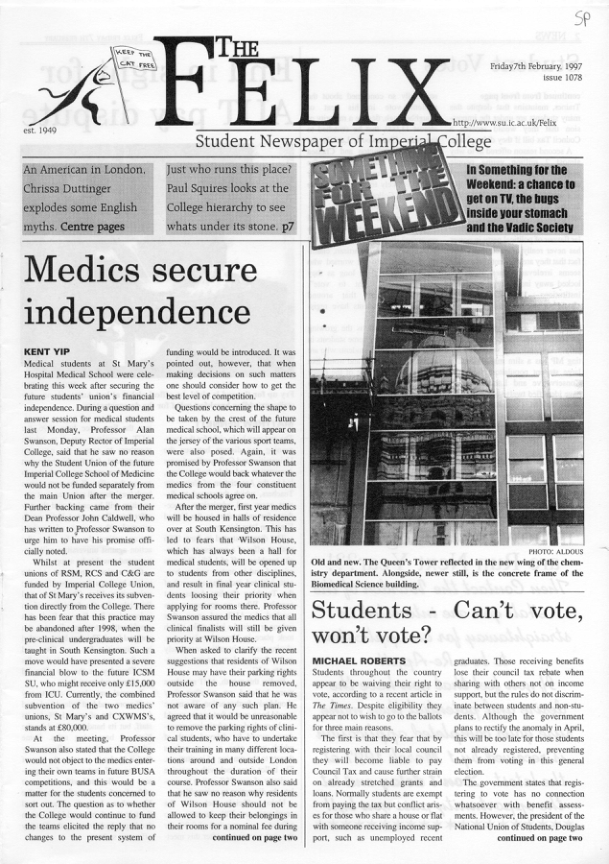End in sight for AUT pay dispute
The end may be in sight for the long-running pay dispute between the Universities and Colleges Employers Association and eight trade unions, led by the Association of University Teachers, which threatened to disrupt exam and admissions procedures for universities in the United Kingdom later this year.
The dispute started in June 1996 with an offer of a pay rise to university teaching staff of 1.5%. This was rejected and in protest various boycotts initiated, including a boycott of the Teaching Quality Assessment exercise. When no agreement was reached, the AUT and seven other unions organised a joint strike which took place in November last year, closing many universities completely and shutting down many departments at IC.
Earlier this month, AUT members were balloted on whether they should take further action. The move would have meant that exams would not be marked and admissions procedures would be delayed, both of which were seen as very serious threats to the running of institutions. The ballot came back with a massive majority of over 75% voting to escalate the disruption to universities.
Union officials met with the employers on 30th January who offered a new pay deal of 2.9% for the next two years. After this meeting, the first since June 1996, the AUT committee voted to advise members to accept the new pay arrangement. A ballot has been sent out to union members on whether to accept the offer. If the vote comes back ‘yes’ then all action against universities will be ended, and the pay offer formally accepted. If the vote is returned with a majority of members voting against the offer, then the action against universities will continue and possibly be stepped up.
One major concession to the unions has been the support from the universities Vice Chancellors and Principles for the formation of an independent Pay Review Body that would settle future pay disputes at a national level. This has been avoided by universities for some time, and was the major concession in the talks last Thursday, as the pay offer did not change substantially.
Imperial was always able to pay staff more, and had indeed budgeted for a pay rise of around 4% for its staff, but its hands were tied by the National bargaining rules. Some other universities or colleges may find it harder to increase the pay of existing staff, but some of the pressure was alleviated with an increase of funding for higher education in the November budget. Many had thought that there would be a cut in funding, which was why the first pay offer was so low.





